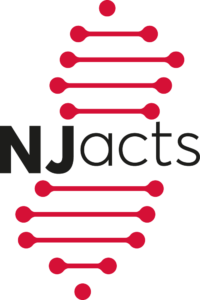 Please read Dr. Horton’s article in the Journal of Clinical and Translational Science titled, “Assessments of working group effectiveness in the planning of the New Jersey Kids Study: An applied mixed-methods study on the science of team science.“
Please read Dr. Horton’s article in the Journal of Clinical and Translational Science titled, “Assessments of working group effectiveness in the planning of the New Jersey Kids Study: An applied mixed-methods study on the science of team science.“
There is growing recognition of the potential for team science to address complex, large-scale public health issues, such as obesity and COVID-19. The field of team science encompasses the empirical examination of “processes by which large and small scientific teams, research centers, and institutes organize, communicate, and conduct research.” The Clinical and Translational Science Awards (CTSA) program from the National Center for Advancing Translational Sciences (NCATS) of the National Institutes of Health (NIH) fosters team science by engaging “all relevant expertise across disciplines, fields, and professions to produce research that advances translation” and integrating “concepts, theories, methods, technologies, and approaches from the range of disciplines, fields, and professions that can advance research goals.” Although the value of team science has been demonstrated, more research is needed on how best to evaluate, cultivate, and promote team effectiveness. Furthermore, few publications have evaluated team effectiveness and productivity in the planning stages of large-scale team science initiatives. The scientific and organizational decisions made in these early stages can be critical for ensuring downstream success.
The New Jersey Kids Study (NJKS), an ambitious statewide initiative, aims to better understand the factors influencing childhood health, growth, development, and disease. The NJKS will enroll up to 5000 pregnant people across NJ and follow their children for at least 10 years. This research effort also seeks to establish a platform for high-impact transdisciplinary research. To design the NJKS and develop a protocol with optimized utility to address a range of research questions, the NJKS Executive Committee enlisted the collaborative, collective efforts of over 100 faculty, staff, and trainees from multiple schools and campuses across Rutgers University and Rutgers Health. Numerous academic and professional disciplines were included to ensure diverse types of expertise in study design. Individuals were organized into topical working groups (WGs) focused on major themes in maternal–child health, such as neurodevelopment and growth. WGs were tasked with identifying and prioritizing major knowledge gaps, research questions, survey instruments, tests, and research protocols to recommend for inclusion in the larger NJKS. To read the full article.
Assessments of working group effectiveness in the planning of the New Jersey Kids Study: An applied mixed-methods study on the science of team science. Gigliotti RA,Weidner M, Jansen M, Greenberg P, Bachmann G, Dominguez-Bello MG, Parmar V, Panettieri RA Jr, Reilly N, Ayers CA, Cohen B, Denzin LK, Feldman CA, Fiedler N, Jimenez ME, Laumbach RJ, Malin SK, Mazzaferro N, Pai SL, Rosen T, Rossman-Murphy L, Salvatore JE, Schmitz KH, Shapses SA, Shiau S, Zarbl H, Reichman NE, Barrett ES, Blaser MJ, Horton DB. J Clin Transl Sci. 2024;8(1):e163. DOI:1017/cts.2024.578
